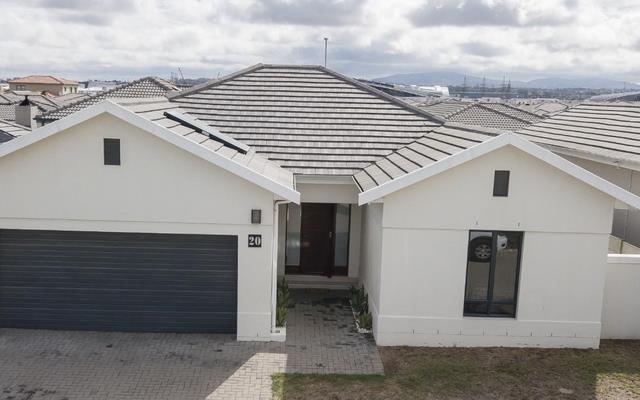A new analysis by INRIX has shown that Cape Town’s commuting vehicle drivers spend more time in congested traffic than those of any other major city in South Africa.

The report has revealed that on average, Capetonians “lose a whopping of 162 hours” in traffic congestion situations every month. Cape Town’s predicament is even worse than that of Pretoria, where drivers lose 143 hours each month and Johannesburg where the figure is 119 hours, says Rowan Alexander, Director of Cape Town Northern Suburbs estate agency, Alexander Swart Property.
The survey ranks Cape Town as the 28th worst city in the world for traffic congestion, but it is still far better off than cities like Bogota in Columbia and Rome where commuters lose 272 and 254 hours every month, respectively.
Alexander says this unfortunate situation in Cape Town has been caused by a slowdown in the last twenty years in new highway and road construction - and it is affecting the property market very noticeably.

According to Alexander, both parents of many Cape Town families now spend an inordinate amount of time in slow-moving traffic. To make up for this lost time, they have been seeking other ways of improving their quality of life, in particular by reducing time spent on journeys to the schools of their choice, daycare centres, local shops and recreational venues and facilities, such as hiking and mountain bike trails and gyms. Proximity to all of these is highly prized.
Alexander says he has also identified a growing trend amongst buyers: they are willing to accept more compact and space-efficient homes, especially in sectional title projects, provided that these reduce their commuting time.
He says in the long term the difficulties of getting to workplaces, particularly in the Cape Town CBD, will cause major corporates and other businesses to decentralise both their offices and industrial premises. This has taken place at Brackengate in Brackenfell (now home to Shoprite, Food Lover's Market, British American Tobacco, Plumblink and others), Richmond Park, Century City and the Tyger Waterfront.

“This trend is clearly discernible - wherever there is land suitable for development on the fringe of built-up areas, new projects are being or will be launched,” says Alexander.
“Decentralisation of this kind will be increasingly necessary in the next few years, since Cape Town continues to attract a steady influx of new residents. Despite the country’s considerable economic problems, Cape Town still has more employment opportunities for middle- and upper-income groups than any other centre, and on average pays higher salaries.”
A widely quoted report by recruitment agency Adzuna, published in Business Insider, revealed that although Johannesburg is still considered to be South Africa’s financial hub and accounts for 16% of the country’s GDP, Cape Town salaries have been consistently higher. Of the 140 000 jobs advertised through Adzuna’s platform in January, salaries offered in Cape Town were 4.2% higher than in Johannesburg. The average annual salary in Cape Town was R374 173, against R359 285 paid in Johannesburg. Gauteng provincial salaries at R304 799 were 23% lower than those paid in Cape Town.
Decentralisation has been shown to radically improve the lifestyles of employees and their efficiency at work. It is therefore the logical choice, and employers who ignore this will find themselves at a disadvantage in years to come, says Alexander.
Also read: Upgrades to Durbanville’s CBD set to boost property values
Also read: Here’s why young buyers are flocking to Cape Town’s Brackenfell
Also read: New apartments from under R1.4m in Cape Town’s northern suburbs








